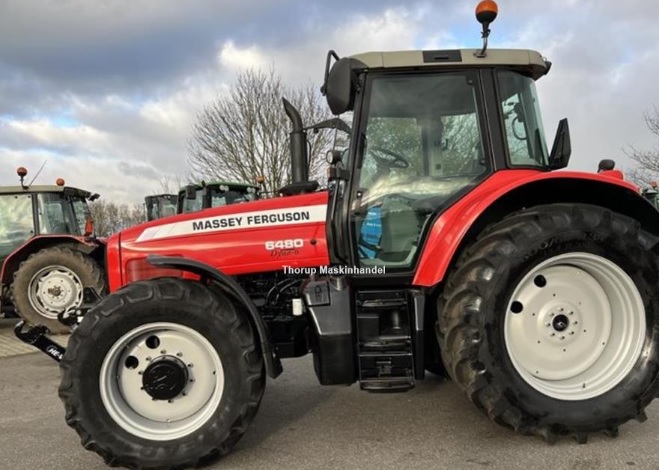YETRAC
Massey Ferguson: A Legacy of Agricultural Innovation
Massey Ferguson: A Legacy of Agricultural Innovation
The name Massey Ferguson is synonymous with agricultural machinery and farming excellence. Founded in 1953, Massey Ferguson has emerged as one of the world’s leading agricultural equipment manufacturers. With a rich history, a commitment to innovation, and a global presence, Massey Ferguson has played a pivotal role in shaping the modern farming landscape.
Origins and Early Years
Massey Ferguson traces its roots to the merger of two venerable agricultural equipment companies: Massey-Harris of Canada and Harry Ferguson’s British-based Ferguson Company. The merger in 1953 formed Massey-Harris-Ferguson, which was later shortened to Massey Ferguson. This consolidation brought together the expertise and resources of two companies that had already made significant contributions to the agricultural industry.
Massey-Harris: A Canadian Legacy
Massey-Harris was founded in Newcastle, Ontario, Canada, in 1847 by Daniel Massey, and it initially manufactured simple farm implements such as plows and reapers. Over the decades, the company expanded its product line and became known for innovations like the self-rake reaper and the Massey-Harris tractor. The company’s Red Tractors, famous for their distinctive red color, became a staple on farms across North America.
Harry Ferguson: The Innovator
Harry Ferguson, an Irish engineer and inventor, founded the Ferguson Company in 1930. He is best known for his pioneering work on the three-point hitch system, a revolutionary innovation that allowed for greater control and efficiency in tractor operation. The three-point hitch system became a standard feature in modern tractors and is still widely used today.
The Merger and the Birth of Massey Ferguson
The merger between Massey-Harris and the Ferguson Company in 1953 was a strategic move to create a global agricultural machinery powerhouse. The resulting Massey Ferguson brand brought together the strengths of both companies and set the stage for decades of innovation and growth in the agricultural sector.
The MF 35: A Game-Changer
One of Massey Ferguson’s early successes was the introduction of the MF 35 tractor in 1957. This compact and versatile tractor quickly gained popularity among farmers worldwide. Its affordability, ease of use, and the incorporation of the Ferguson three-point hitch made it a game-changer in the farming industry. The MF 35 became one of the best-selling tractors of its time and played a crucial role in increasing farm productivity.
Innovation and Expansion
Massey Ferguson has always been at the forefront of innovation in agricultural machinery. The company continued to introduce new technologies and products to meet the evolving needs of farmers around the world.
The MF 100 Series: A New Era
In the 1960s, Massey Ferguson introduced the MF 100 Series, a range of tractors that featured modern design, improved comfort, and enhanced performance. These tractors were known for their reliability and versatility, making them a favorite among farmers in various agricultural sectors.
The Combine Harvester Revolution
Massey Ferguson’s commitment to innovation extended beyond tractors. The company also made significant strides in combine harvester technology. The MF 31 combine, introduced in the early 1960s, was a standout product. It offered greater harvesting capacity and efficiency, reducing the labor required for harvesting crops.
The Global Reach
Massey Ferguson’s global presence expanded rapidly, with manufacturing facilities and distribution networks established in various countries. This global reach allowed the company to cater to the specific needs of farmers in different regions and climates. Massey Ferguson tractors and equipment could be found on farms from North America to Europe, Africa, Asia, and beyond.
Challenges and Triumphs
Over the years, Massey Ferguson faced its share of challenges, including economic downturns, changing market dynamics, and shifts in agricultural practices. However, the company’s commitment to innovation and customer satisfaction helped it overcome these challenges.
The AGCO Era
In 1995, Massey Ferguson became part of AGCO Corporation, a global leader in agricultural solutions. This acquisition strengthened Massey Ferguson’s position in the industry and provided access to additional resources for research and development.
The MF 5600 Series: Meeting Modern Needs
In response to changing agricultural demands, Massey Ferguson introduced the MF 5600 Series in the early 2000s. These tractors combined power and efficiency, making them well-suited for modern farming operations. The series included models with advanced features like electronic controls and emissions-compliant engines.
Sustainable Agriculture and Beyond
In recent years, Massey Ferguson has embraced the principles of sustainable agriculture. The company has developed environmentally friendly technologies, such as low-emission engines and precision farming solutions, to help farmers reduce their environmental footprint while improving productivity.
Legacy and Impact
Massey Ferguson’s legacy in the world of agriculture is profound. The company’s innovations, from the three-point hitch system to modern tractor and harvester designs, have played a pivotal role in transforming farming practices and increasing food production worldwide. Its dedication to quality and reliability has earned the trust of generations of farmers.
Today, Massey Ferguson continues to be a driving force in the agricultural machinery industry. With a diverse range of products, a global network of dealers, and a commitment to sustainability, Massey Ferguson is well-positioned to meet the evolving needs of farmers in the 21st century.
In conclusion, Massey Ferguson’s journey from the merger of Massey-Harris and the Ferguson Company to its present status as a global leader in agricultural machinery is a testament to its enduring commitment to innovation, quality, and customer satisfaction. The company’s legacy is deeply intertwined with the history of modern agriculture, and its contributions continue to shape the farming landscape for a sustainable and productive future.

